Painting Furniture Grey | Without Sanding or Priming (Yes It Works!!)
If you’re looking for a quick and easy way to update your furniture, painting furniture grey is a great option.
Here’s everything your need to know about Heirloom Traditions Paint.
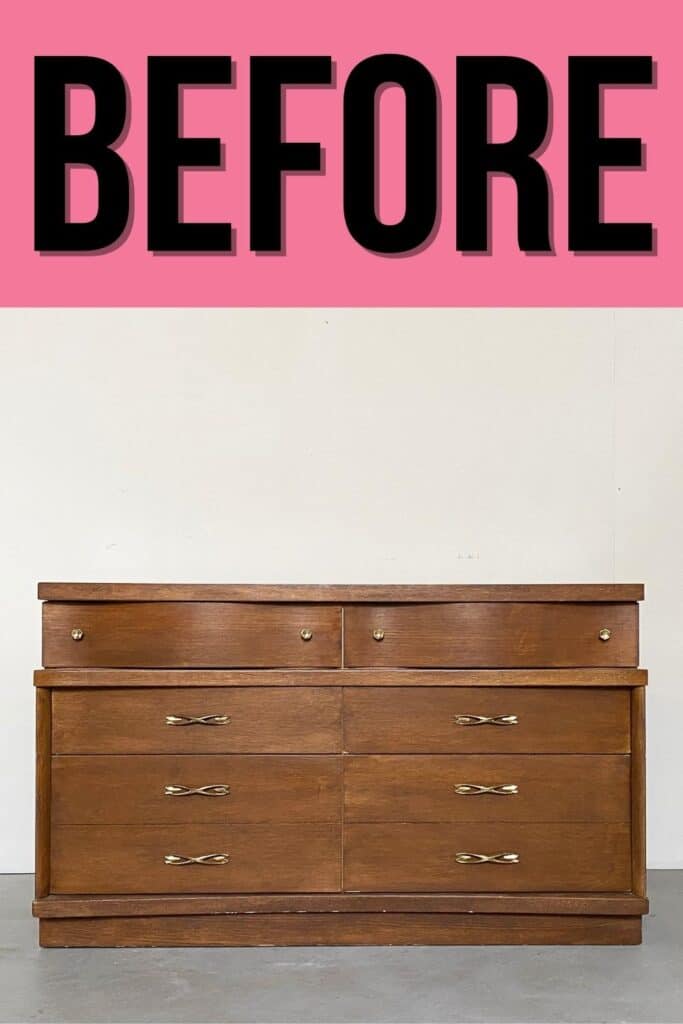
The best part is you don’t need to sand or prime beforehand! Just follow our simple steps, and you’ll have beautiful grey furniture in no time.
We bought this dresser from Facebook Marketplace for, I think, around $75. It’s a Bassett made dresser and has some good bones.. and it was in pretty good shape as well.
I wasn’t in the mood to do a bunch of sanding or priming. I wanted to get right into a makeover and have fun with it.
I added some dowels to the top 2 drawers of this dresser. It wasn’t the easiest or fastest thing to do, but it was a lot of fun for me.
Even though I worked on adding the dowels painting at the same time, I’m going to show you the process for each of them separately.
Supplies Used for Painting Furniture Grey
As an Amazon Associate, I earn from qualifying purchases. I also may earn from other qualifying purchases with other companies or get free product to review and use. All opinions are my own.
- Electric Screwdriver
- Shop Vacuum
- Krud Kutter and an Old Rag
- KwikWood
- Heirloom Traditions Paint in Abbey
- Wagner FLEXiO 3500 Paint Sprayer
- Paint Filters
- Respirator
- Zibra Square Paint Brush
Supplies Used for Wooden Dowel Furniture
- 1/4″ Dowels
- Miter Saw
- Instant Super Glue
- Power Sander (Use code RAY10 to get 10% off your order)
- 80 Grit Sandpaper (Use code RAY10 to get 10% off your order)
- Medium Grit Foam Sanding Pads (Use code RAY10 to get 10% off your order)
Preparing Furniture for Paint
First things first, we have to prep the furniture for paint. But with this paint, prep is super easy! First, I removed the hardware, like always, with my electric screwdriver.
If I wanted to change the hardware to new hardware, I would have filled in the old hardware holes like this post on how to change hardware on a dresser explains.
My husband cleaned the dresser inside and out for me with a shop vacuum and then with Krud Kutter and an old damp rag. Learn more about how to clean furniture before painting here.
Then I repaired a few small chipped veneer spots.
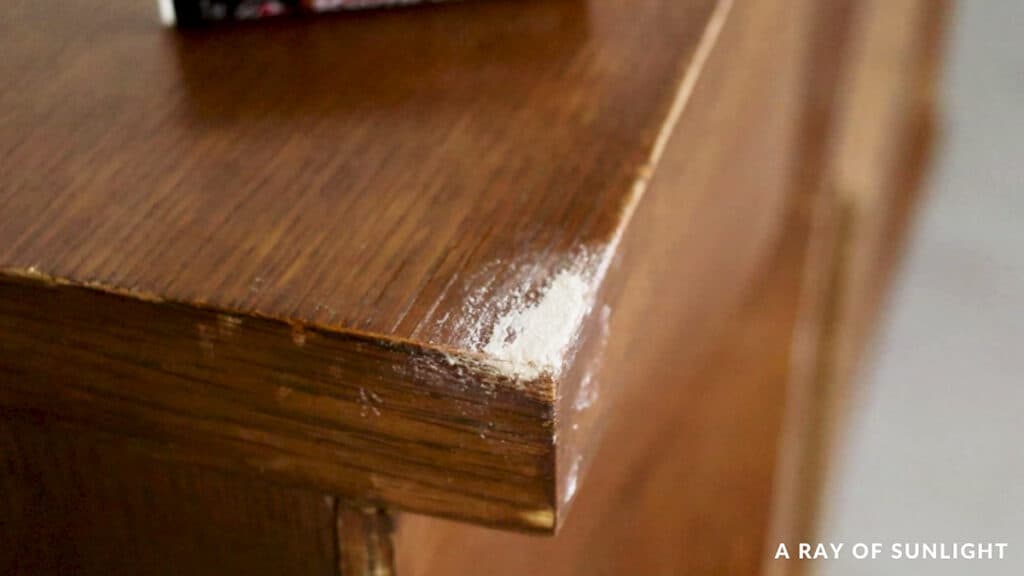
I used water to help shape the Kwikwood so I wouldn’t have to do much sanding, if any, once it was dry. Learn more about how to use KwikWood here.
About an hour and a half later, the Kwikwood was dry. I lightly sanded the Kwikwood with 150 grit sandpaper while my husband mixed up the paint for the dresser.
To be honest though… I didn’t sand more than a couple times back and forth over the Kwikwood.
Painting Furniture with Heirloom Traditions Paint
Since I don’t want to mess around with sanding and priming the whole dresser, I used Heirloom Traditions Paint.
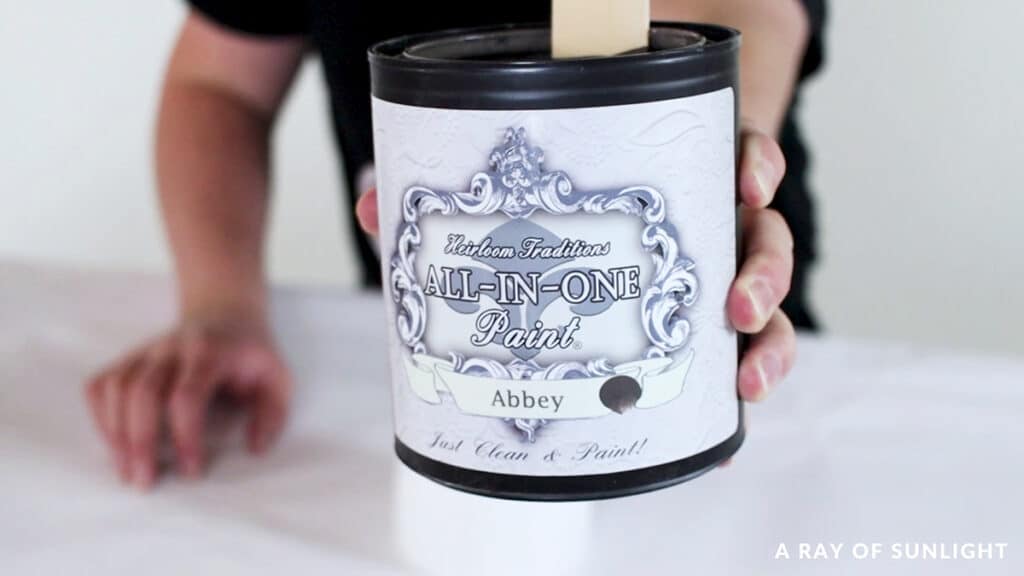
This paint sticks better than any other paint I have used.
Check out my Heirloom Traditions Paint review here. And our post on painting furniture with Heirloom Traditions Paint for more information.
We went with this dark grey color from Heirloom Traditions Paint called Abbey.
Check out these Fusion Mineral Paint VS Heirloom Traditions Paint and Beyond Paint VS Heirloom Traditions Paint comparisons to learn more about how Heirloom Traditions Paint compares.
Spraying Heirloom Traditions Paint
We poured it into our Wagner paint sprayer and mixed it with 20% water to help it spray into a perfectly fine, texture-free finish. Learn more about how to thin paint for Wagner sprayer here.
Oh, and I got a new paint sprayer (the Wagner FLEXiO 3500)!
Check out my honest and detailed Wagner 3500 Paint Sprayer Review here.
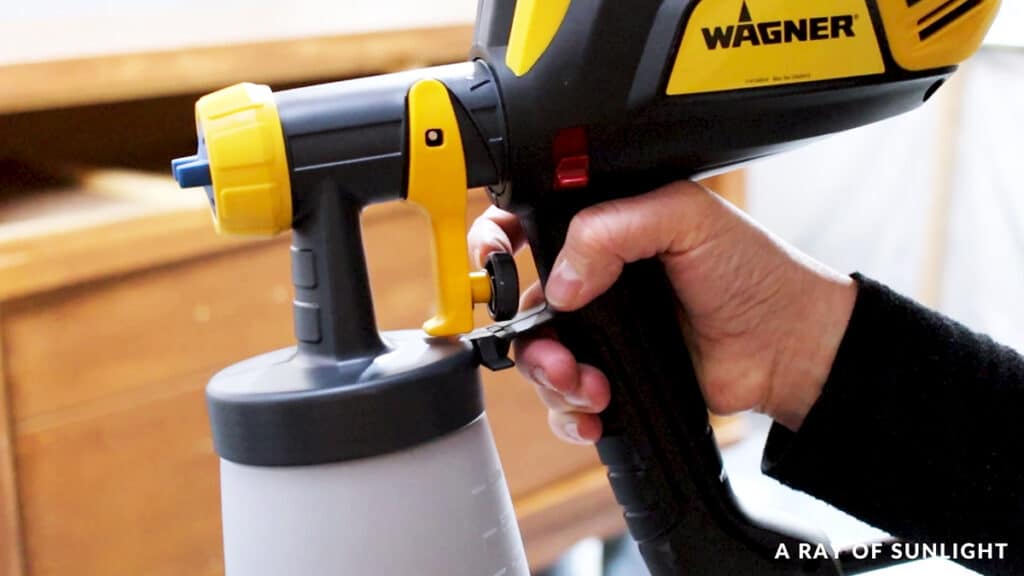
It’s just a slight upgrade from my older Wagner FLEXiO 3000 that I love… and that I will still use.
Check out my guide on how to use Wagner FLEXiO 3500 here.
But, since they came out with a new model, I decided to try it and see how different it is and let you know if it’s good or not. Learn about how to use the FLEXiO 3000 here.
Check out my list of the best Wagner paint sprayers for furniture here.
So we got the dresser into the spray room (a room in our unfinished basement that has a window and plastic on the walls and floor), and I tested the spray settings.
I set the Xboost power setting to 5 and the trigger paint flow setting in about the middle… but closer to the trigger.
I tested the spray on some cardboard and felt good about how the paint came out, so I moved on to spraying the dresser.
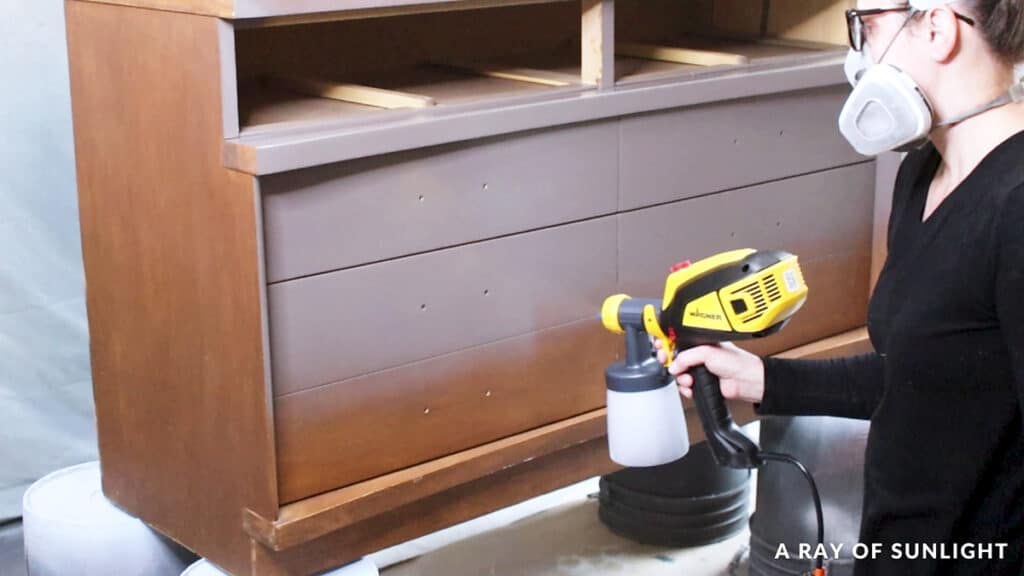
The biggest difference I noticed with this sprayer is that there is an on/off switch that keeps the motor and air going. So it helps reduce splatters when you first pull the trigger.
But with the older model, you just pull the trigger part of the way to get the motor going and then all of the ways to start spraying.
Everything else felt the same. See how the Wagner FLEXiO 3000 compares to other best HVLP paint sprayers for furniture here.
After 6 minutes, I had a full coat of paint on the dresser, and I left it to dry for about an hour.
Painting Inside the Drawers
When the paint was dry on the dresser, I opened up the drawers and brushed some paint onto the edges of the drawers and then on the inside of the dresser.
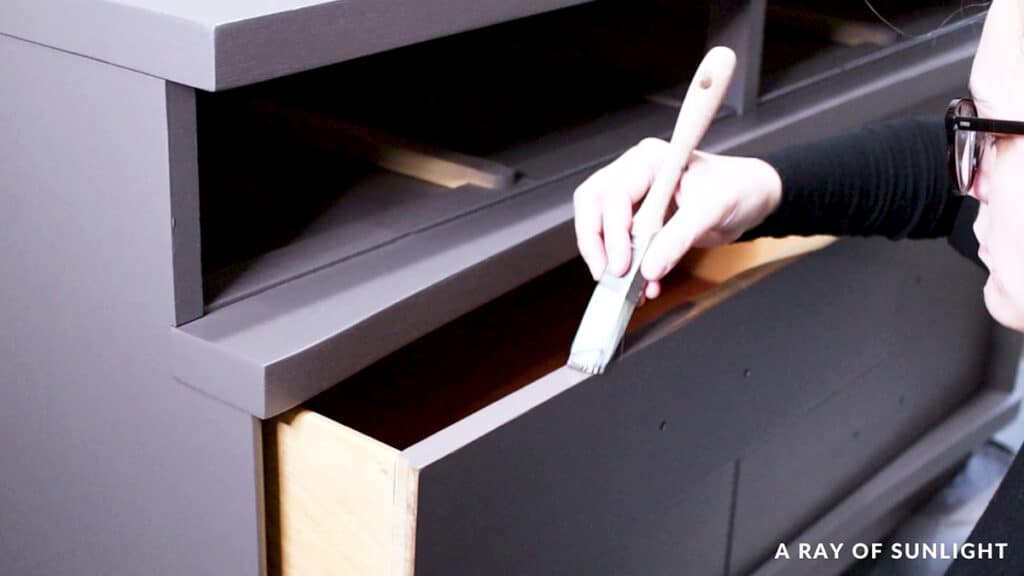
I usually tape the drawers with plastic to prevent overspray when spraying furniture, but I was feeling lazy… which didn’t save me anytime at all. haha
I don’t usually worry about the inside parts of the dresser, but the way this dresser was made, you can see all these wood braces and things when you open the drawers, so I painted it to make it look nicer.
I ended up doing this for 2 separate coats of paint. And then, before I went to bed, I sprayed one last coat of paint on the dresser to make sure everything had full coverage.
Then I cleaned the sprayer. I wouldn’t let this paint sit in it overnight. Learn about how to clean a Wagner paint sprayer here. It takes about 5-10 minutes and is really simple.
Cleaning Furniture Hardware
To finish it all up, I cleaned up the hardware before putting it back on.
For the top 2 drawers, I used the same hardware, but I put the knob in the middle of the drawer instead of on the sides. Here’s how to clean old furniture hardware.
I love how simple painting the dresser was. Now, let’s dive into the more complicated process of how to add dowels on dresser drawers.
Adding Dowels to Furniture
I bought 125 of these quarter-inch dowels on Amazon, and then I cut them to the size of the top drawers.
I’m not going to lie, this part stressed me out because I was cutting smaller pieces and some of them went flying. But I managed to get them all cut without cutting myself.
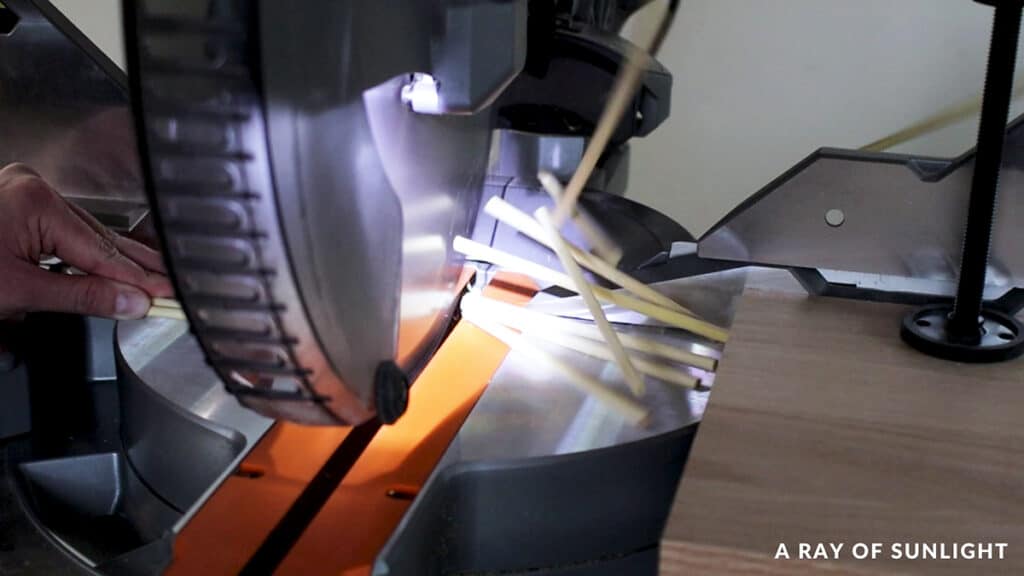
I probably should have used a hand saw for this instead….
Then I quickly sanded the top 2 drawers to help the dowels stick, but also because I wanted the wood behind the dowels to be lighter in case there were gaps that showed between the dowels…
Yeah, that ended up not being necessary. But oh well. Check out this DIY fluted dresser makeover where I made something similar with the dowels.
How to Glue Dowels to Furniture
Then I worked on gluing the dowels to the drawers. I used a piece of wood and clamps to help me line the dowels up straight, and I used some instant super glue to glue the dowels on.
With this glue, I poured the glue onto the drawer, and then I sprayed the dowel, and then put them together.
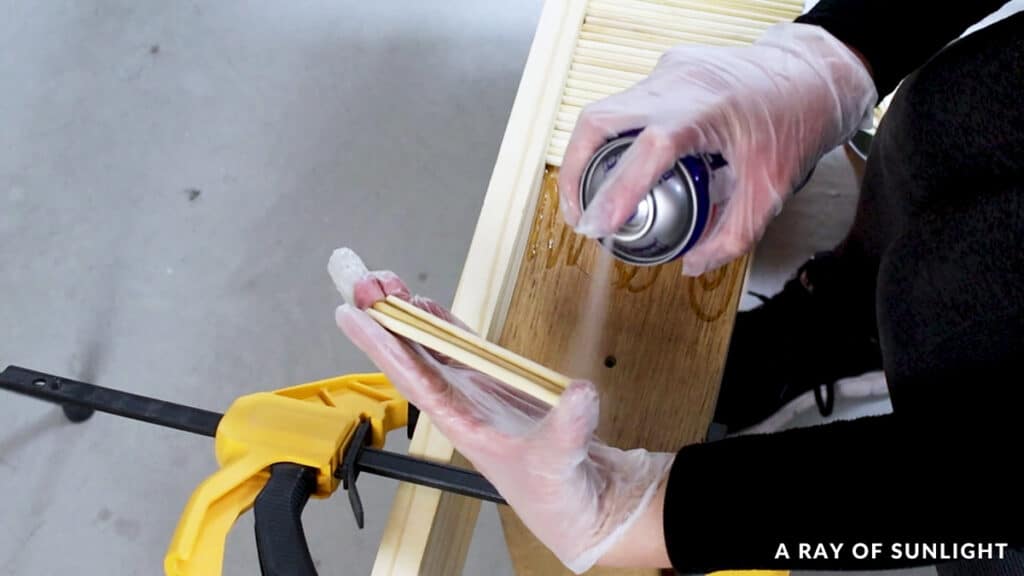
Once the spray comes in contact with the glue, it all dries within seconds. It has a super strong smell though, so my windows were all open, and I wore my respirator as well.
The next day I had to cut the dowels on one drawer with my multi-tool saw because I didn’t cut those to the right size on the saw.
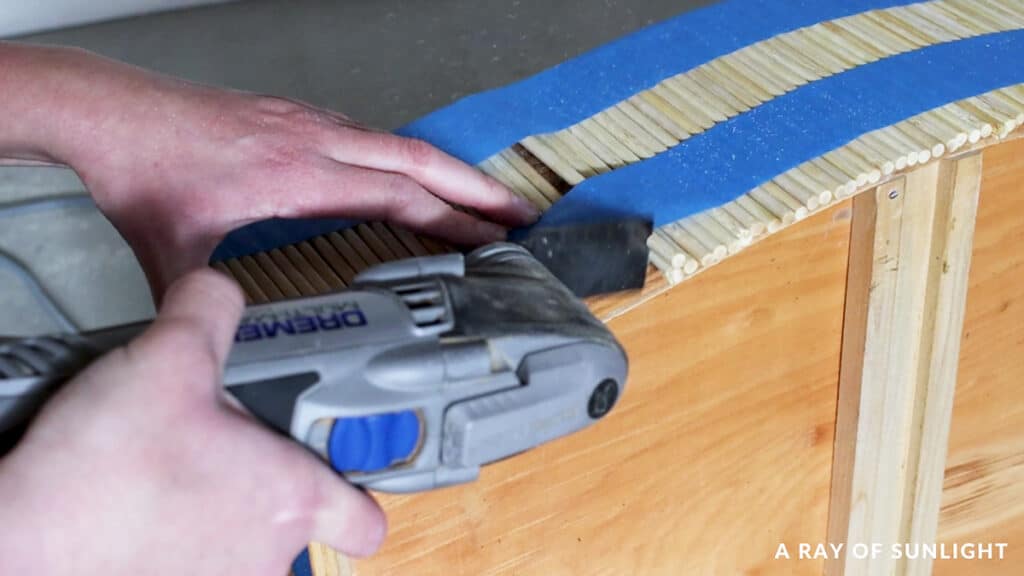
Since this drawer is curved, I couldn’t clamp a board to the drawer to keep the dowels from vibrating off when I cut them… so I tried tape and to put pressure… that didn’t work so well and a lot of the dowels came loose.
So I had to glue them back on.
Check out this post about all in one paint for furniture where I glued popsicle sticks to make a cheap herringbone accent on a cabinet drawer. I had a similar issue with that one.
Sanding the Dowels
Then I sanded the edges of the dowels to make them all flush with the drawer and make them look nice.
I used my SurfPrep sander with 80-grit sandpaper for the edges and then medium-grit foam sanding pads to sand the face of the dowels.
Learn more about why the SurfPrep sander is my favorite sander for painting and refinishing furniture.
I’m not going to lie, this whole dowel process was really tedious. And I questioned my sanity a few times through it all.
I had to glue the dowels back on a few times through it all… Then I put the drawers back in the dresser… thinking I was going to keep them as is… but I hated the look of the wood on those top drawers.
So… I decided to paint them to match the dresser.
Drilling Holes for New Hardware
But first, I thankfully thought about drilling the hardware holes before painting. So I did that by measuring the exact center of the drawer and drilling a hole.
But then realized that the way these drawers sit in the dresser, the hardware needed to be offset a little to line up with the hardware on the drawers below.
So I redrilled after measuring 50 billion times.
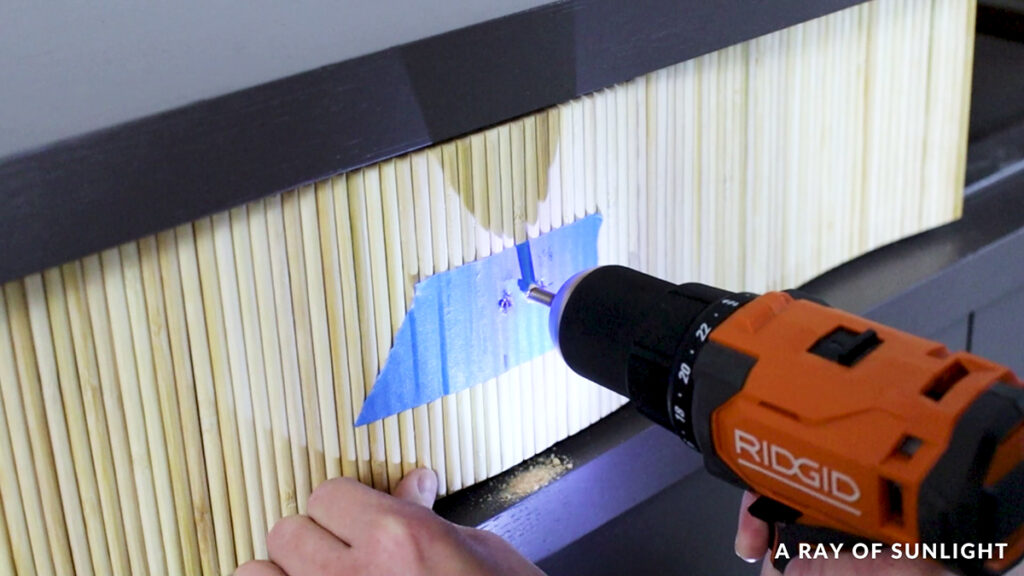
And then I filled the wrong hole with more KwikWood. I shaped the KwikWood with my metal scraper and some water so I wouldn’t have to sand it to shape it after it was dry.
Painting the DIY Dowel Drawers
When the KwikWood was dry, I sprayed a few coats of paint on the drawers. This time I had to wrap them in tape and pre-taped plastic to keep the paint from getting all over the drawers.
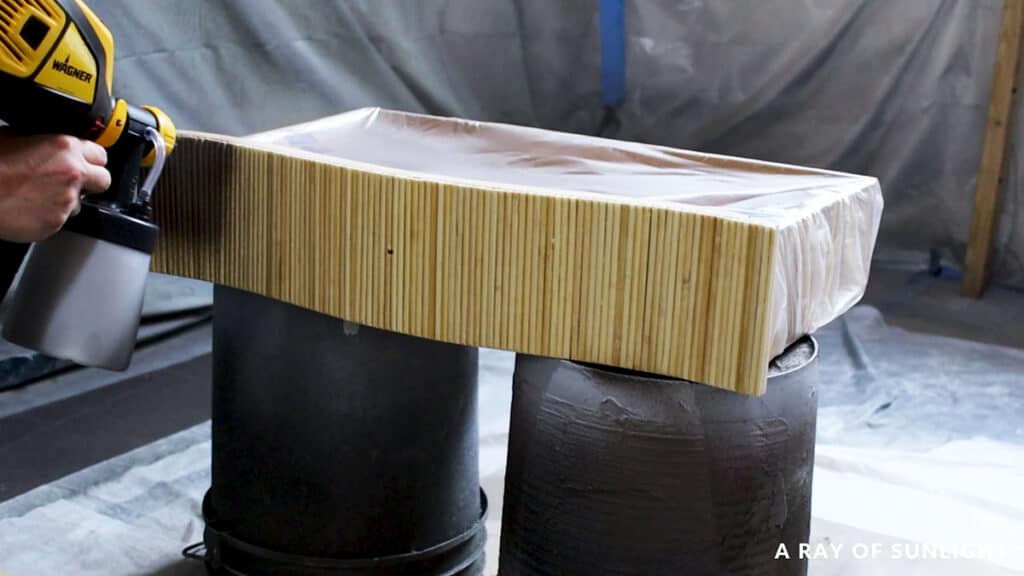
Typically, I would have primed, but with this dark color, I hoped for the best. And this paint doesn’t need a topcoat, so I wasn’t as worried either. They turned out excellent, though!!
You can also watch the video of this makeover below.
The finish looks exactly the same as the rest of the dresser, and there aren’t any bleedthrough stains. Learn more about how to stop stains from coming through paint here.
And here’s what the grey painted dresser looks like now!
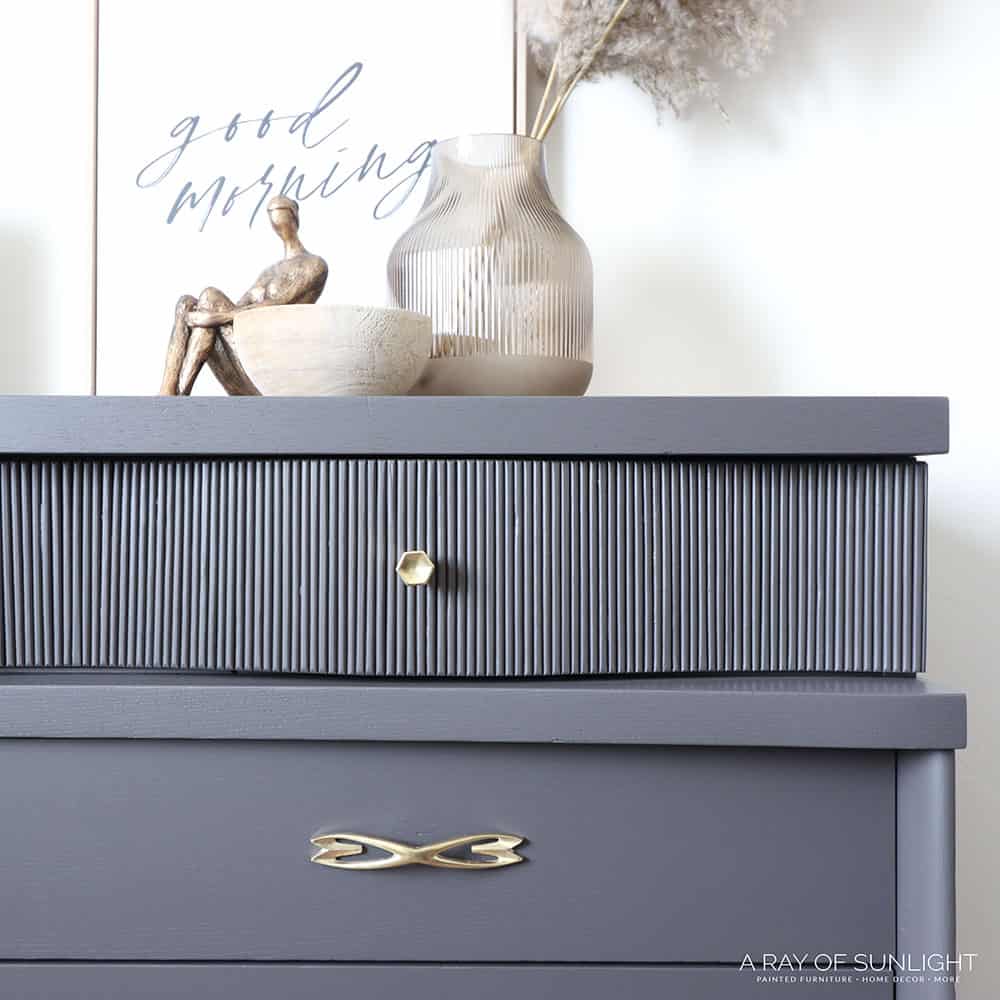
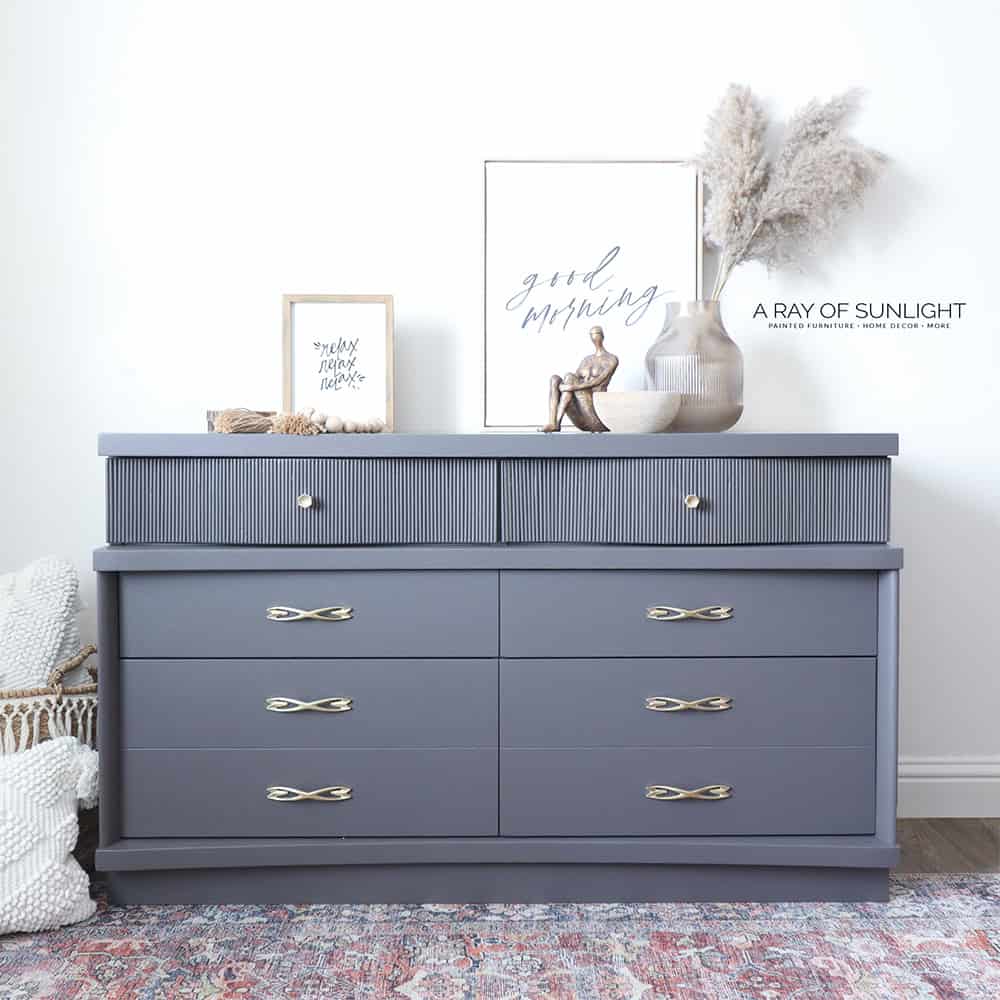
More Before And After Makeovers
Click any of these “before” photos below to view the “after” of that makeover.
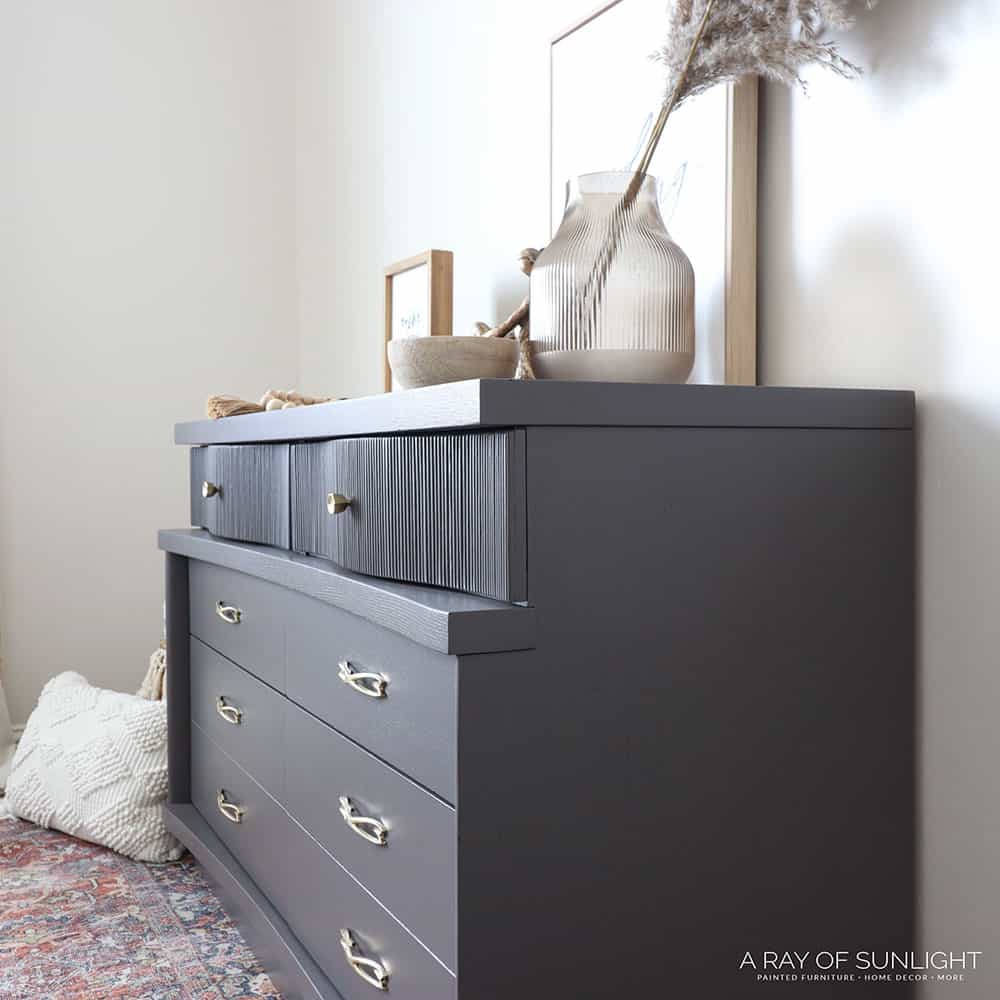
I love the new look! The dowels add some subtle texture that I absolutely love! I’m so glad I painted them; it was worth the extra work.
The original hardware… I’m not 100% sure about it. I think it’s interesting, but if I were to keep this dresser for myself, I would change it out for something a little simpler.
What do you think? Do you like the hardware? Is the dowel look worth all of the work?? Let me know in the comments!
If you want more amazing furniture makeover ideas, check out this post for fresh and innovative ways to revamp your furniture and elevate your home’s aesthetic.
More Grey Painted Furniture Makeovers
- Grey Painted Dressers
- Grey Chalk Paint Dresser
- Embossing Furniture
- Painted Hutch Makeover
- DIY Modern Grey Dresser
Follow us on YouTube to get more tips for painting furniture.
Or share your project with us on our Facebook Group and be part of our community. See you there!

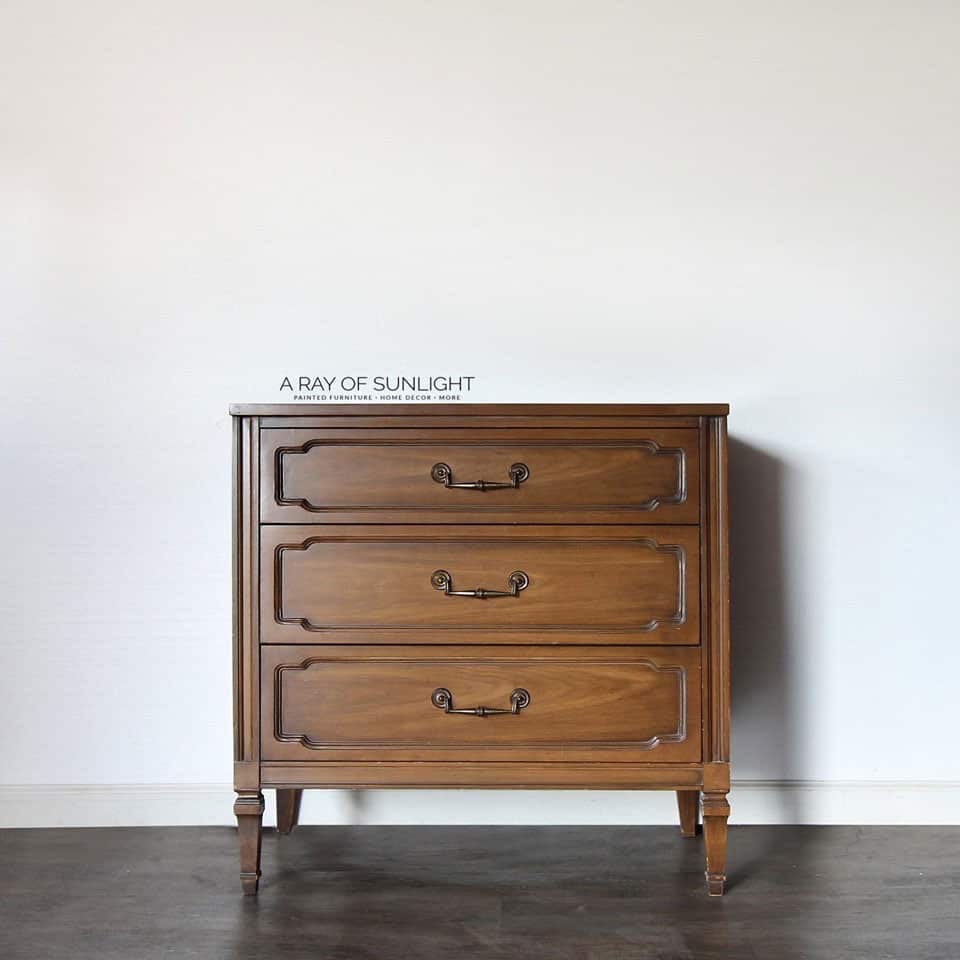
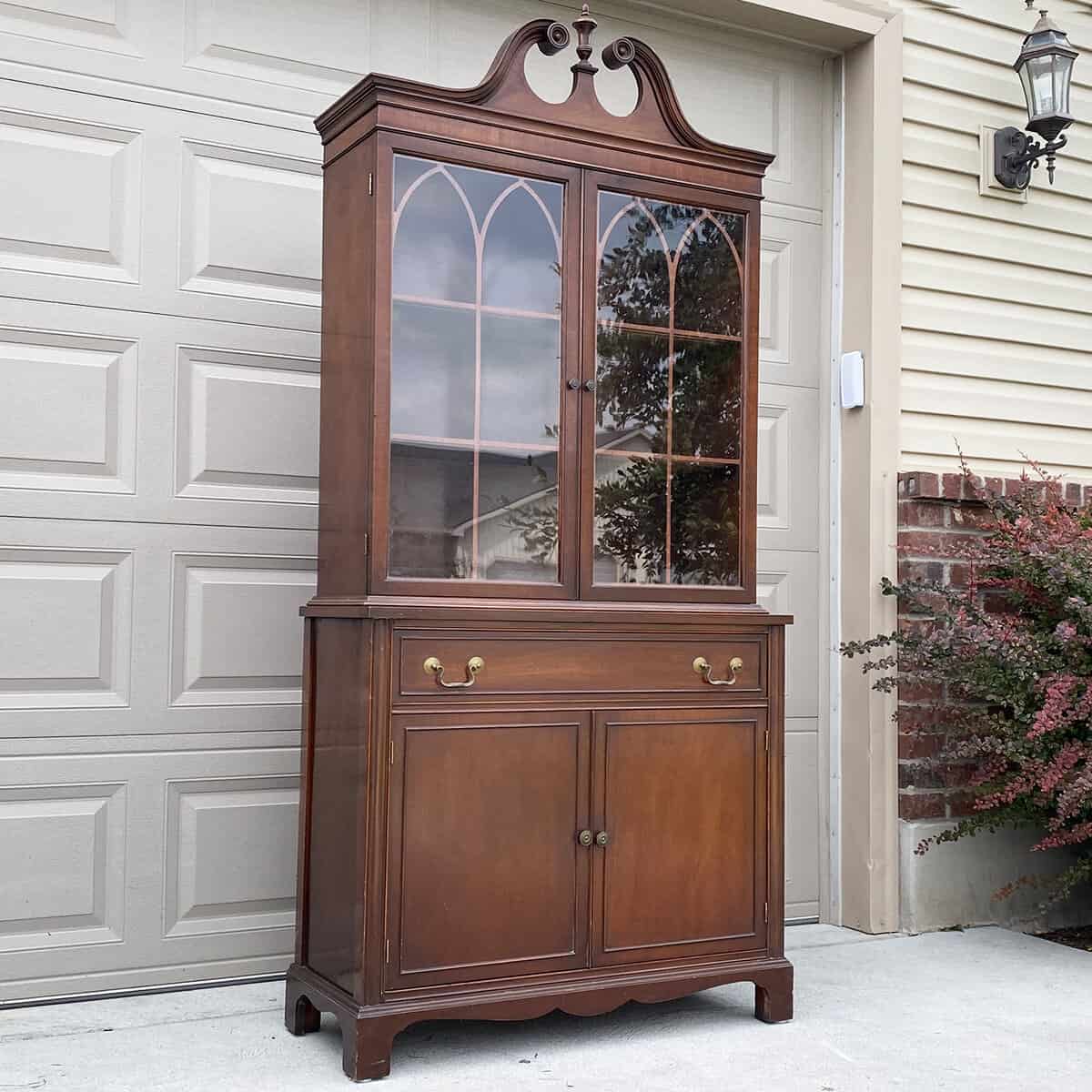
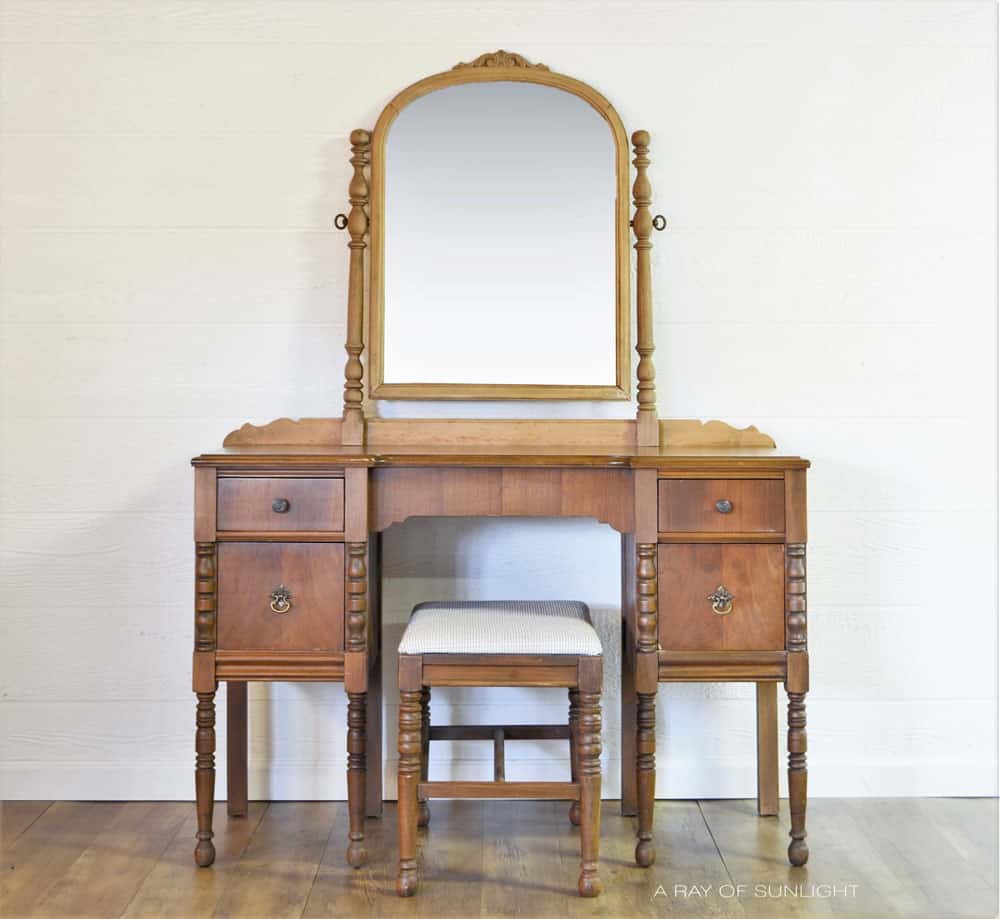
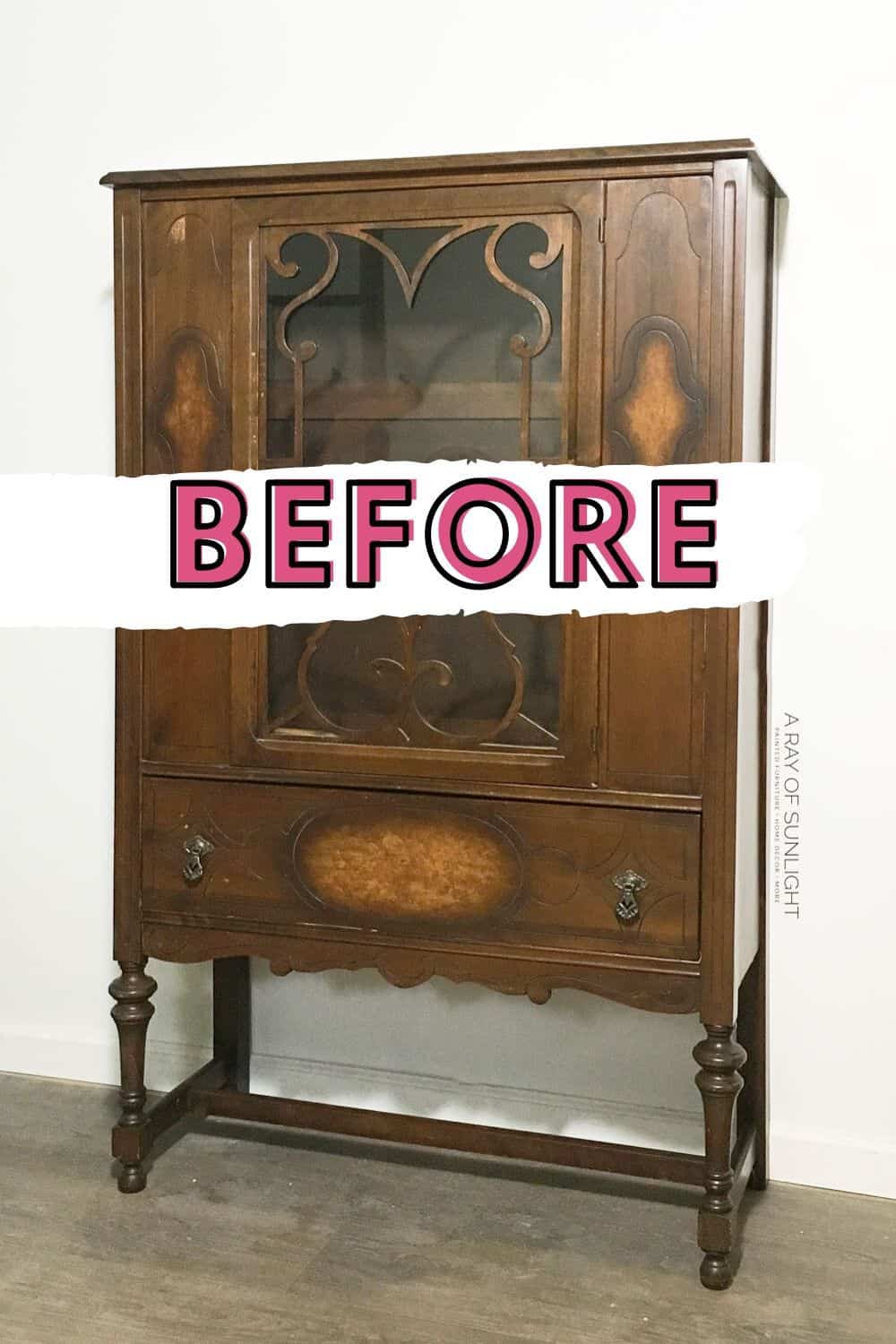
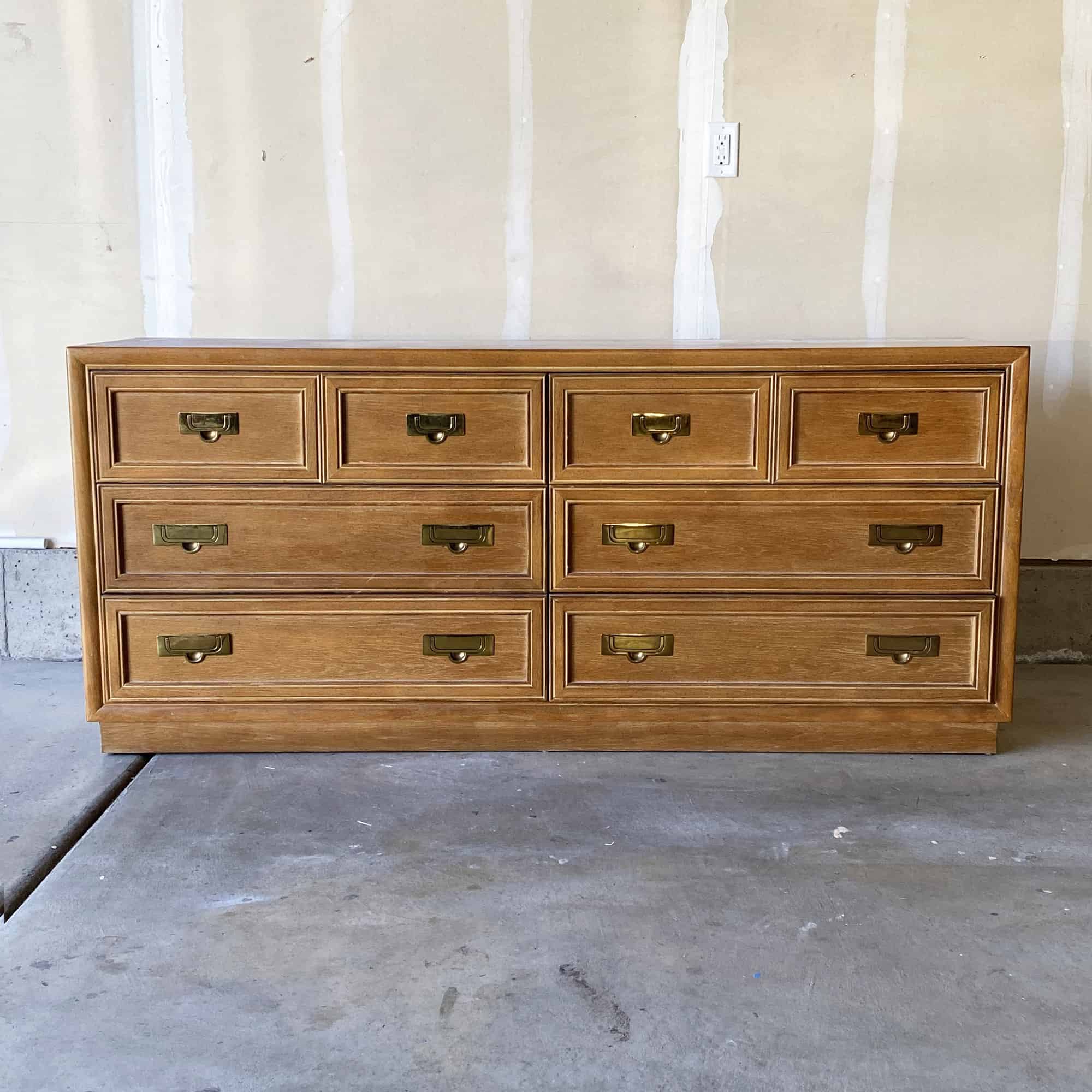
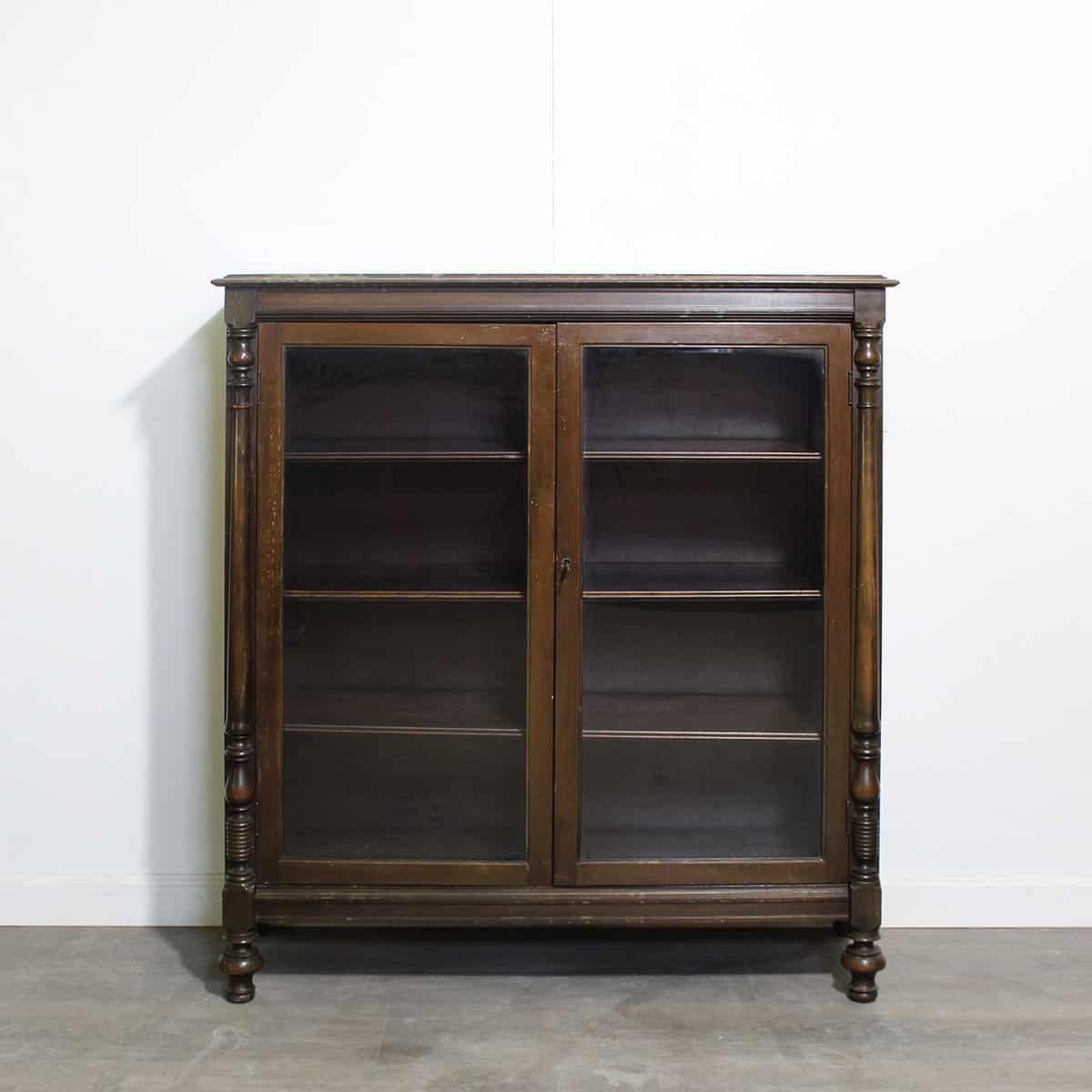
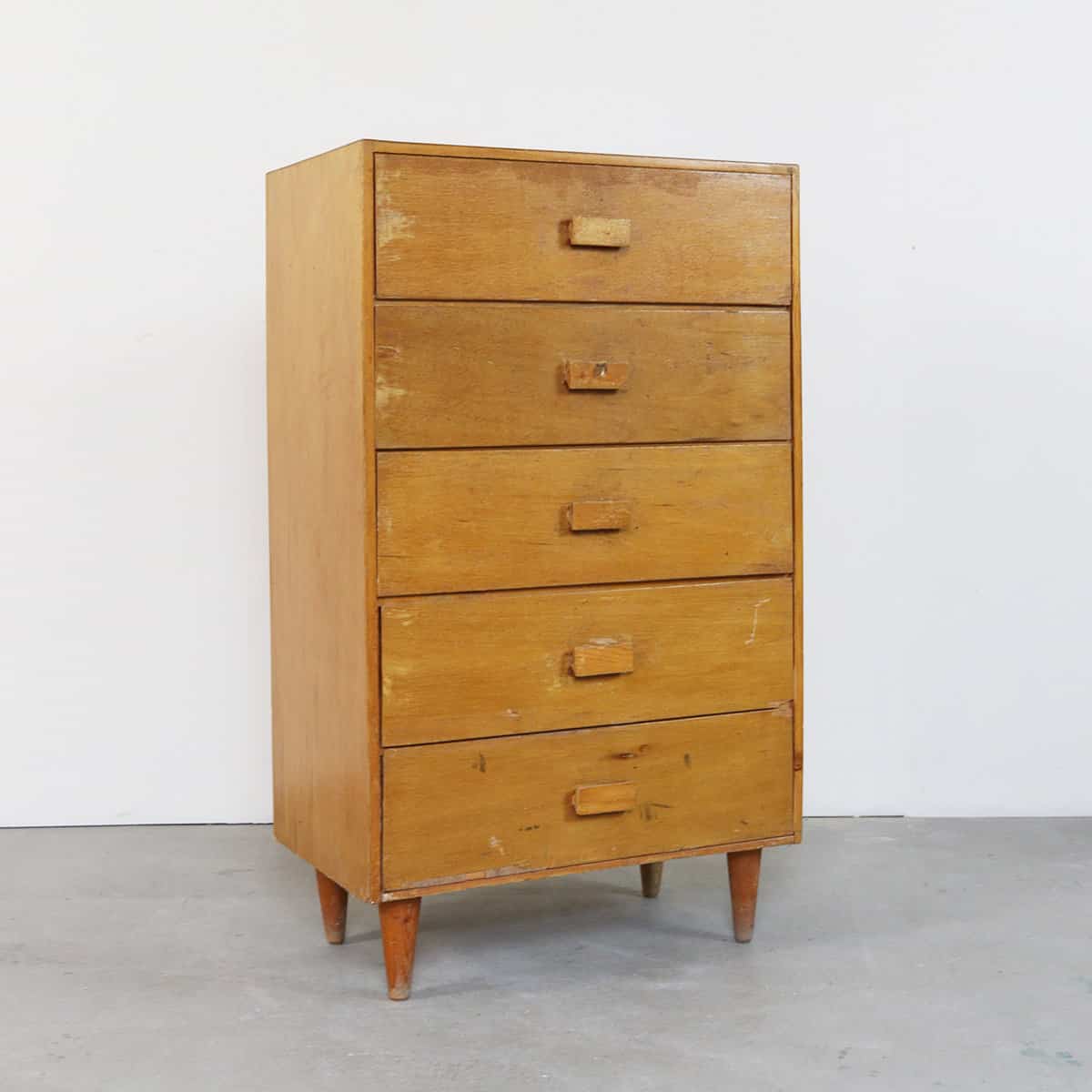
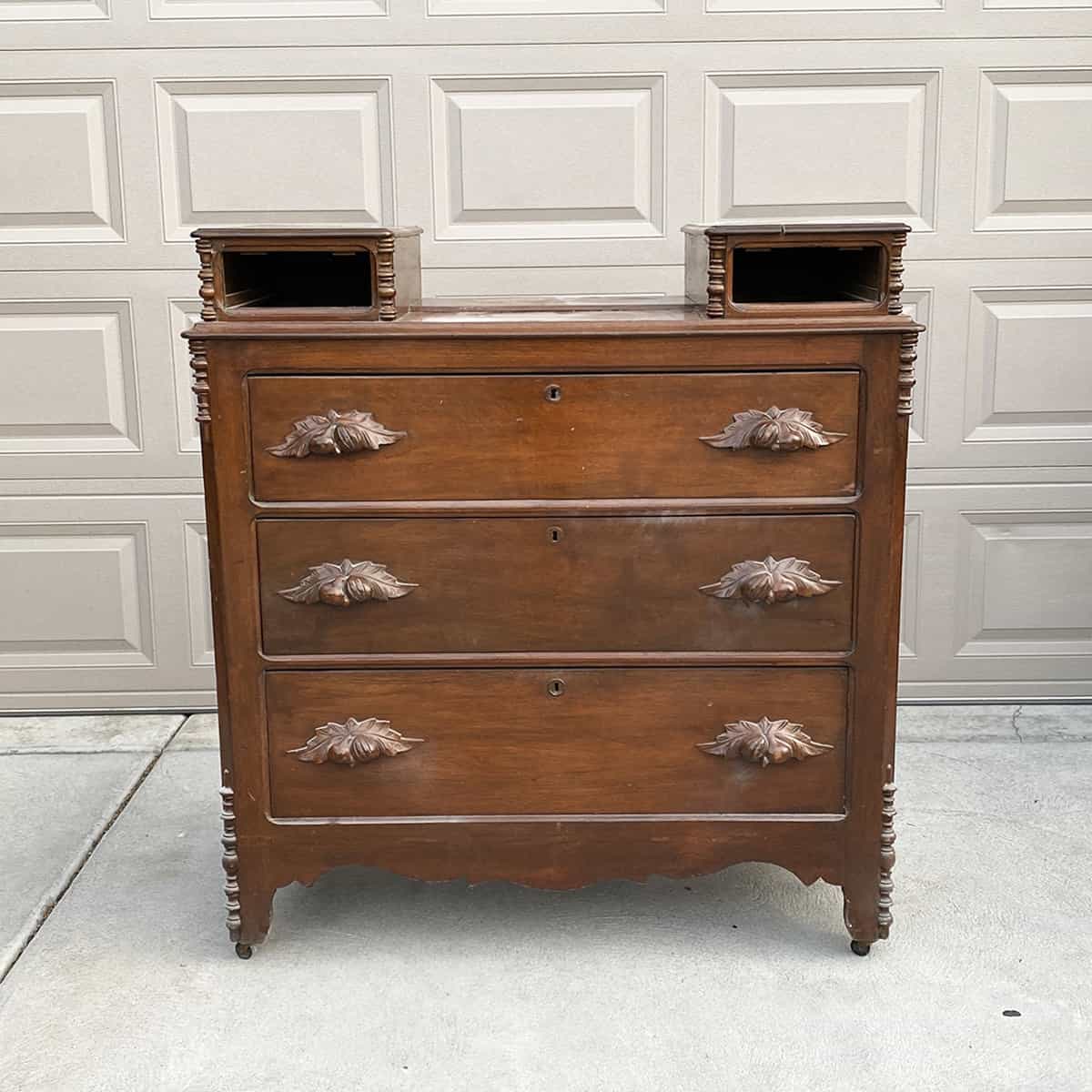
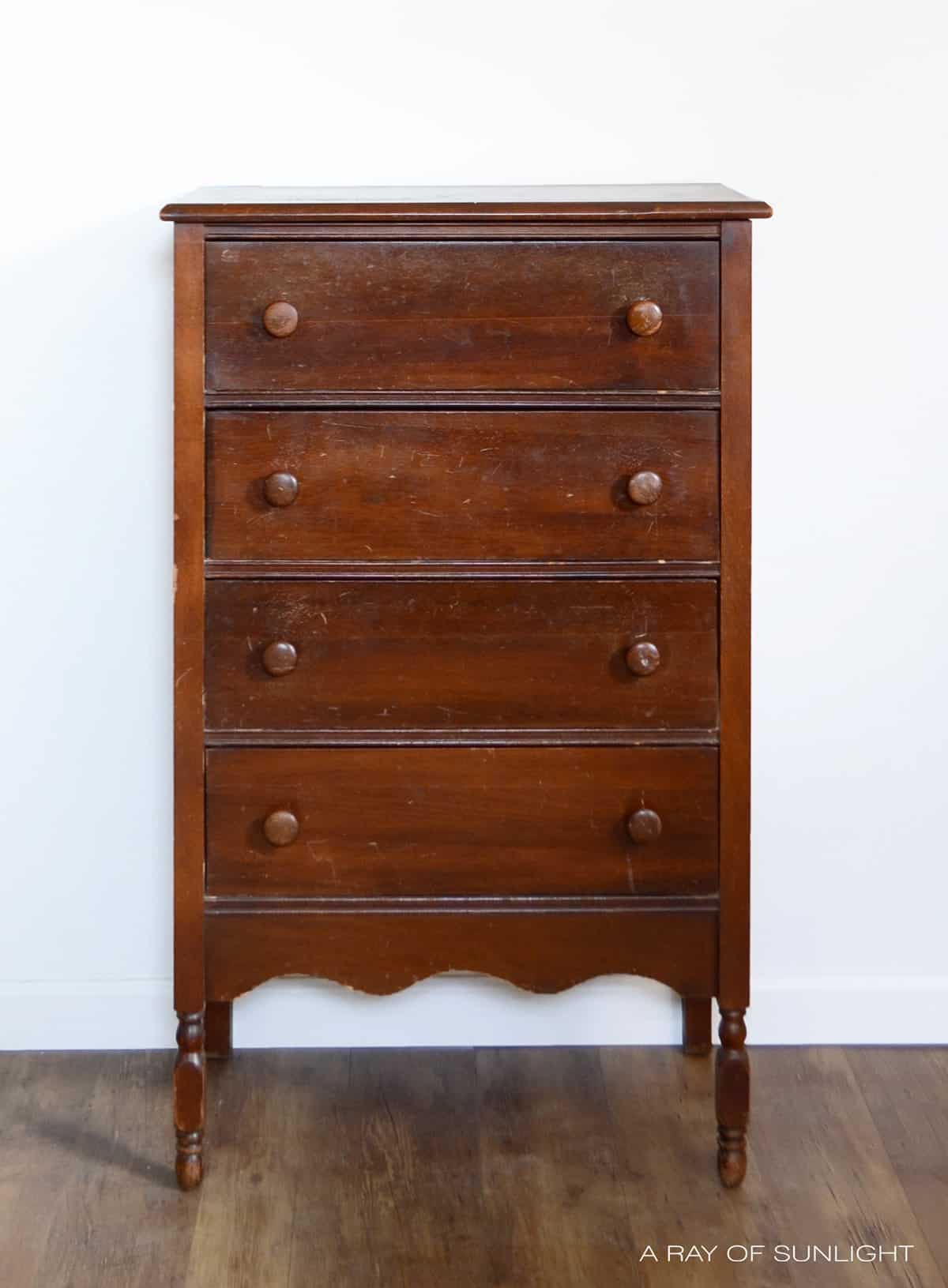
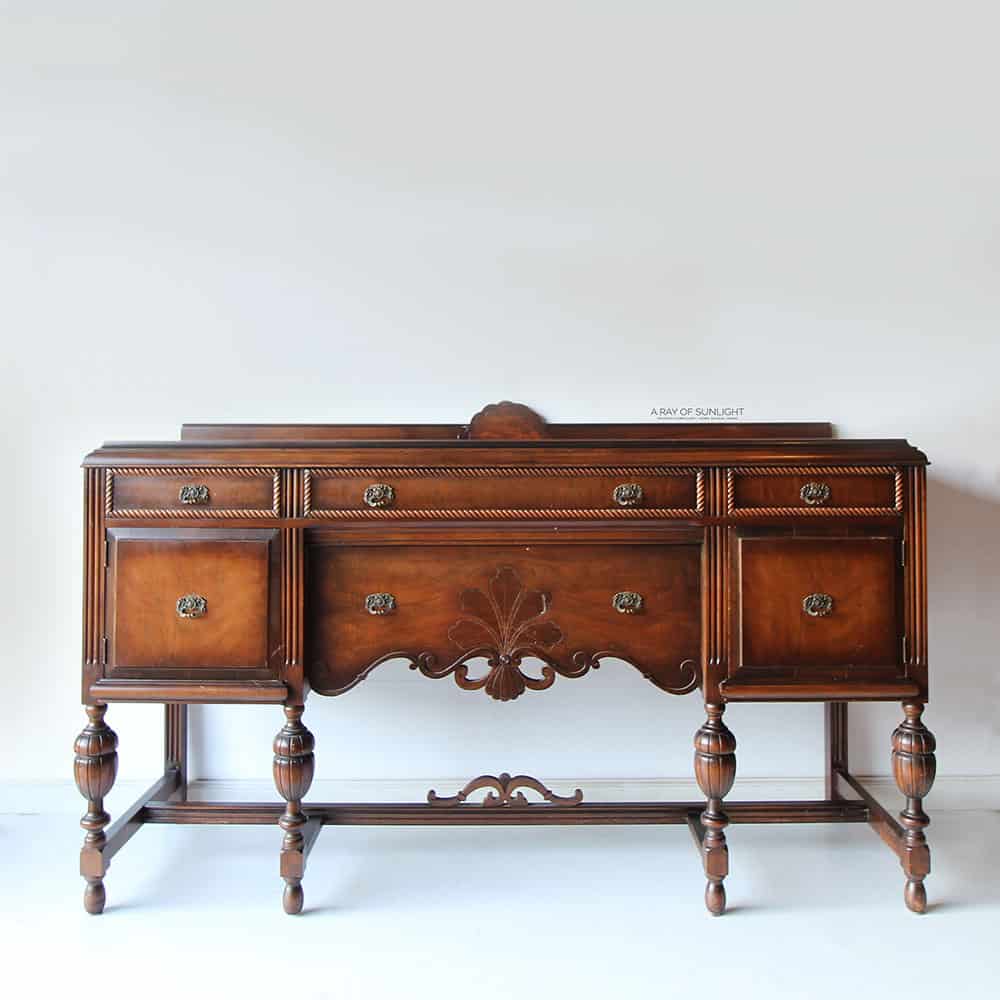
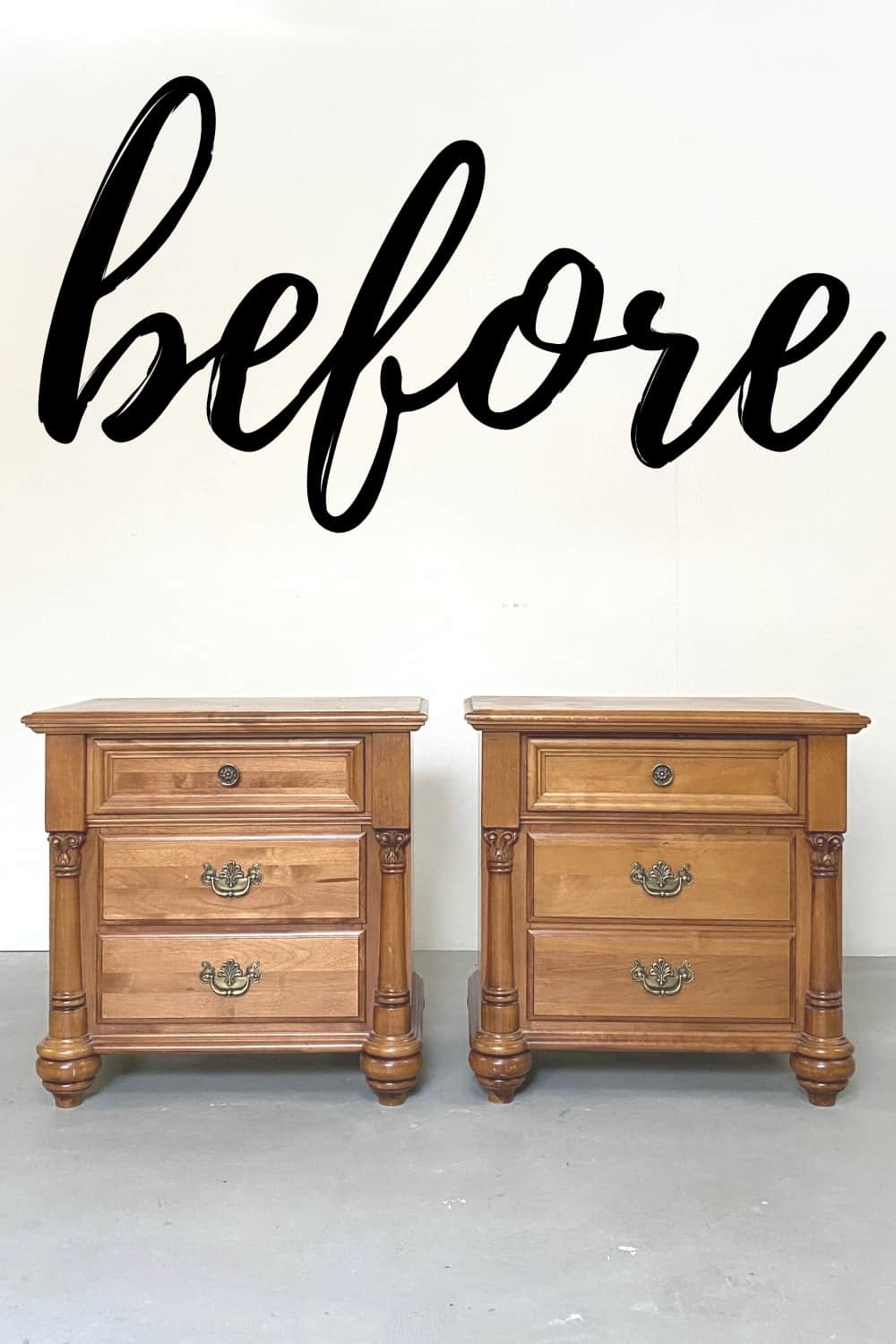
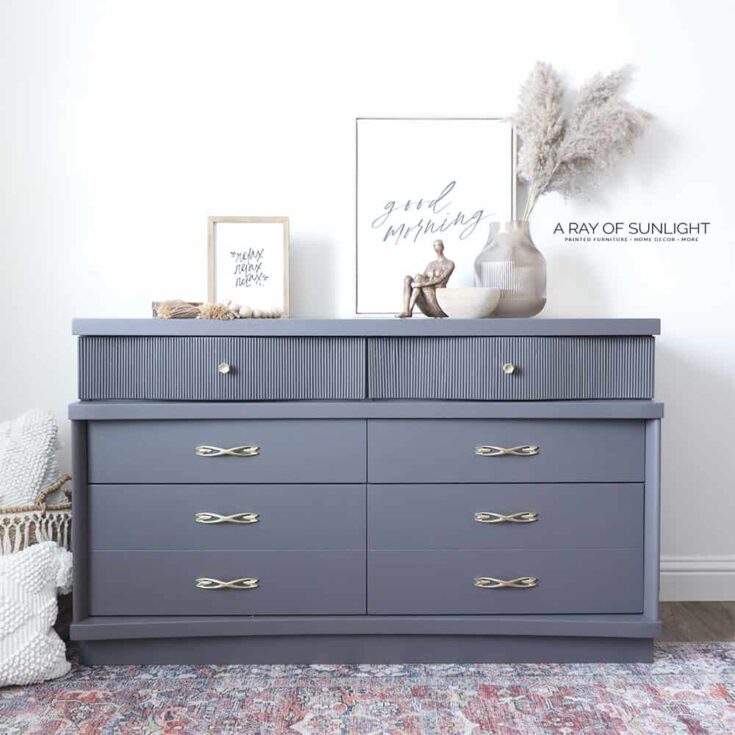
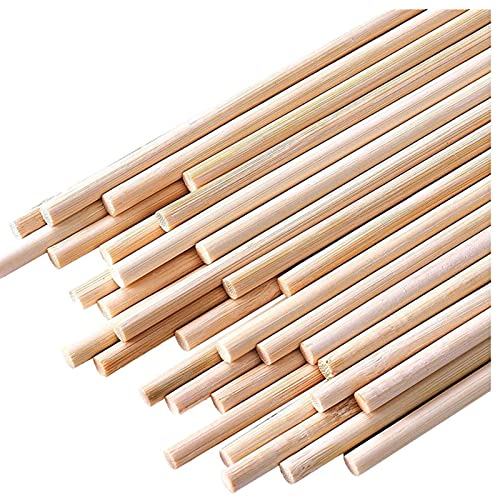


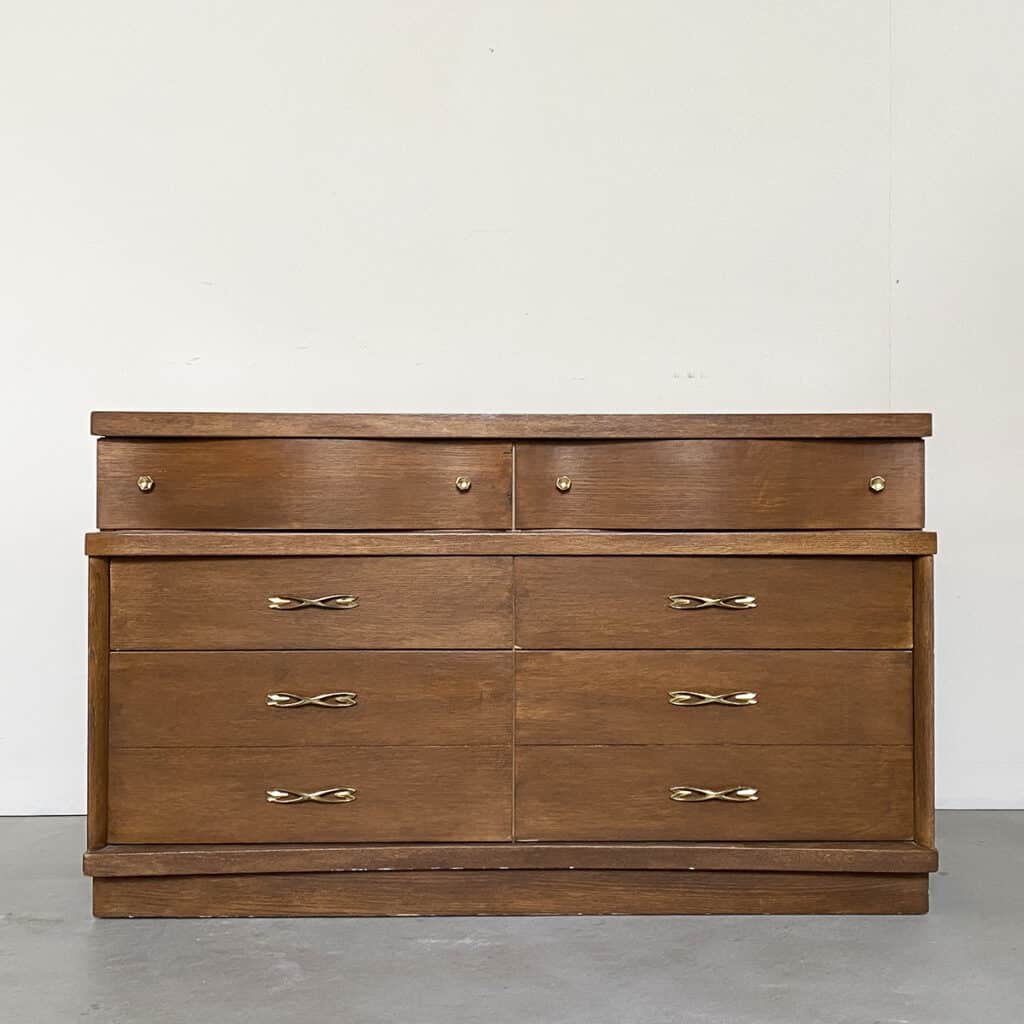
I really love how this turned out. You created something really beautiful. I love that you didn’t have to sand it. I’m happy to tell you I’ll be featuring this post at Thursday Favorite Things tomorrow, starting at 10:00 a.m. CST. 🙂
Pam
anartfulmom.com
As I was reading this post I saw where you referred to a project that you used popsicle sticks to create a herringbone pattern. Now I can’t find the link to explore it. Would you forward it to me? Thank you.
Hey Kim, here is the post you’re looking for. All in One Paint for Furniture + Cheap Herringbone Accent